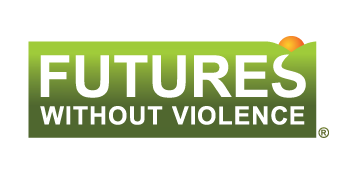Is Your Relationship Affecting Your Health?
How’s It Going?
Everyone deserves to have partners listen to what they want and need. Ask yourself:



If you answered YES to these questions, it sounds like you have a supportive and caring partner. Studies show that being cared for by the person you are with leads to better health, a longer life, and helps your kids.
Are There Times…
My partner or the person I’m seeing:
✘Shames or humiliates me, makes me feel bad about myself, or controls where I go and how I spend my money?
✘Ever hurts or scares me with their words or actions?
✘Makes me have sex when I don’t want to?
✘Keeps me from seeing my doctor or taking my medicine?
These experiences are common. If something like this is happening to you or a friend, call or text the hotlines on this card.
Helping a Friend
Everyone feels helpless at times and like nothing they do is right.
Sound familiar? This can be a bigger problem if you have a partner who is unhealthy or unsafe. Connecting with friends or family who are having hard times like this is so important.
You can help by telling them they aren’t alone. “Hey, I’ve been there too and someone gave this card to me. It has ideas on places you can go for support and things you can do to be safer and healthier.”
And for you? Studies show when we help others we see the good in ourselves, too.
Partners Can Affect Health
A lot of people don’t realize that having a partner hurt you with their words, injure/hurt you or make you do sexual things you don’t want to can affect your health:



Talking to your health provider about these connections can help them take better care of you.
Stronger You
What does it mean to be strong, resilient or come back from bad experiences?



Maybe you have a good friend to talk with. Maybe you don’t yet. For some, talking to the helpful people from the hotlines listed on this card might be a great first step.
Your Past Can Affect Your Health
Some parents/caregivers hurt their kids—it happens more than we think. Maybe they:


Where you live and what you saw when you were a kid can affect you too. Like if you:


Even if some of this or a lot of this happened to you—it isn’t the end of the story.
Simple Steps For Healing
Science tells us when you are hurt as a kid or as an adult you are at risk for having a hard time taking care of yourself. Let’s change that.
- The best way to make it better is to reduce the stress on your body.
- Exercise—it calms the brain and body and helps you feel better.
- It sounds silly, but when you get hurt, your body learns how to hold on to that stress and worry. There’s a way to turn down anxiety when it’s safe.
- Deep breathing is the key to this. Check out “Tactical Breather,” a free cell phone app to help you feel calm and reminds you how to slow your breathing to help you think.
Safety Planning
If you are being hurt by a partner, it is not your fault. You deserve to be safe and treated with respect.
"Safe" looks different for everyone, here are some things that can help:
- Remember what you have done in the past that has worked to keep you safe.
- Prepare an emergency kit in case you have to leave fast with: money, phone charger, keys, medicines, birth certificates and shot records.
- Talk to your health care provider for help using their phone to call the local or national hotlines on this card so the number you called can’t be traced.
Confidential and free chat, text, call line provides support 24/7:
text “START” to 88788
800-799-SAFE (7233)
TTY: 800-787-3224
Free, anonymous safety aid: myplanapp.org
Low cost healthcare and sexual health information: bedsider.org

